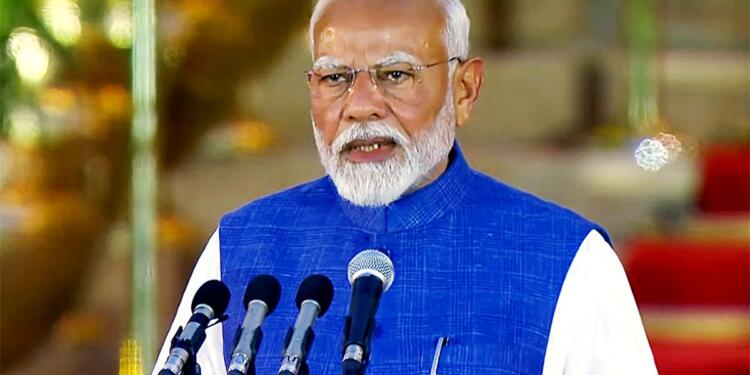As the tenure of Jagat Prakash Nadda, the incumbent BJP national president, nears its end, the party finds itself at a crucial juncture, contemplating his successor. This transition in leadership has sparked active deliberations among party members and political observers alike.
Exploring Potential Successors
Several key figures have emerged as potential successors to Nadda, each bringing their unique blend of experience and capabilities to the forefront:
Manohar Lal Khattar:
A former Chief Minister of Haryana and current Member of Parliament representing Karnal, Khattar’s name has gained traction as a plausible replacement for Nadda. His extensive experience in state governance, coupled with his parliamentary tenure, positions him as a formidable contender for the party’s leadership role. Khattar’s leadership during his tenure in Haryana, particularly his focus on governance reforms and development initiatives, has garnered attention within the party ranks.
Shivraj Singh Chouhan:
Another prominent contender is Chouhan, the former Chief Minister of Madhya Pradesh and current Member of Parliament from Vidisha. With a commendable tenure of over 15 years as Chief Minister and a robust organizational background, Chouhan’s candidacy garners significant attention within the party circles. Chouhan is known for his astute political acumen and grassroots connect, having successfully navigated the complexities of state politics in Madhya Pradesh.
Sunil Bansal:
Acknowledged for his instrumental role in the Uttar Pradesh, Bansal stands out for his organizational prowess and close ties with the Rashtriya Swayamsevak Sangh (RSS). Bansal’s strategic insights and hands-on approach to grassroots mobilization have been instrumental in expanding the BJP’s footprint in key electoral battlegrounds.
Vinod Tawde:
Tawde’s journey from state-level politics in Maharashtra to national prominence underscores his effectiveness and diverse community background, making him a viable candidate for the party’s leadership position. Tawde’s tenure as a minister in Maharashtra and his subsequent elevation to national politics highlight his administrative skills and ability to navigate complex political landscapes.
Om Mathur:
With a wealth of experience in managing BJP campaigns across various states, Mathur’s organizational acumen and strategic insights make him a compelling choice for the top leadership role. Mathur’s understanding of grassroots dynamics and his track record of delivering electoral victories underscore his potential to lead the party in challenging times.
Anurag Thakur:
Thakur’s impressive track record in both ministerial and organizational capacities enhances his candidacy, notwithstanding potential concerns regarding regional representation. Thakur’s leadership during his tenure as Minister of State for Finance and Corporate Affairs and his role in organizational matters within the party position him as a dynamic and capable leader.
BL Santhosh:
Renowned for his expertise in ideological training, Santhosh’s candidacy is marked by his association with the RSS, although concerns linger over electoral setbacks in Karnataka and his outspoken demeanor. Santhosh’s deep understanding of ideological nuances and his ability to mobilize party cadres have been instrumental in shaping the BJP’s organizational structure.
There are other candidates also, perfect for the role in the party.
Navigating the Transition
Nadda’s elevation to the Union Cabinet heralds the need for a seamless transition in BJP’s leadership. This transition underscores the significance of continuity and adaptability in steering the party through prevailing political challenges and future electoral endeavors. The incoming president will inherit a legacy of achievements and challenges, requiring adept leadership to navigate the party through evolving dynamics.
Anticipating the Decision
The imminent selection of the next BJP president is poised to unfold through internal party mechanisms. The chosen leader will shoulder the crucial responsibility of guiding the party’s trajectory, navigating electoral landscapes, and shaping its policy agenda in the years ahead. The decision-making process within the party will be critical in ensuring consensus-building and fostering unity among diverse factions.
Looking Ahead
As India embarks on Narendra Modi’s third term as Prime Minister, the BJP braces itself for a pivotal phase in its leadership journey. The incoming president will inherit the mantle of upholding the party’s legacy, driving its agenda, and navigating the dynamic contours of Indian politics. This transition symbolizes not just a change in leadership but a pivotal moment in the BJP’s ongoing evolution and aspirations. The party’s ability to adapt to changing political realities and capitalize on emerging opportunities will be central to its future success.
In conclusion, the selection of the next BJP president represents a critical inflection point in the party’s trajectory. The chosen leader will be tasked with stewarding the BJP through a period of transition and consolidation, while also charting a course for future growth and success. As the party deliberates on its next leadership, the stakes are high, and the decisions made will shape the BJP’s trajectory in the years to come.
ALSO READ: After the defeat in Delhi, AAP broke alliance with Congress
























